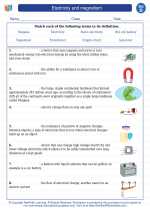Electricity and magnetism -> chemical
Chemical
Chemicals are substances with a distinct molecular composition that are produced through a chemical process. They can be found in various forms such as solids, liquids, and gases. Chemicals play a crucial role in our daily lives, from the food we eat to the products we use.
Types of Chemicals
Chemicals can be classified into several categories based on their composition and properties:
- Elements: These are substances that cannot be broken down into simpler substances by chemical means. Examples include oxygen, carbon, and hydrogen.
- Compounds: These are substances composed of two or more elements that are chemically combined in fixed proportions. Water (H2O) and carbon dioxide (CO2) are examples of compounds.
- Mixtures: These are combinations of two or more substances that are not chemically combined. Mixtures can be homogeneous (uniform composition) or heterogeneous (non-uniform composition).
Chemical Reactions
Chemical reactions occur when substances undergo a chemical change to form new substances with different properties. The reactants are the substances that undergo the change, while the products are the new substances formed.
Common types of chemical reactions include:
- Combustion: A reaction involving the rapid combination of a substance with oxygen, often producing heat and light.
- Acid-Base Reactions: Reactions between acids and bases, resulting in the formation of water and a salt.
- Oxidation-Reduction Reactions: Reactions involving the transfer of electrons between substances.
Importance of Chemicals
Chemicals have numerous practical applications in various fields, including:
- Medicine: Many pharmaceutical drugs are chemical compounds designed to treat diseases and alleviate symptoms.
- Agriculture: Chemical fertilizers, pesticides, and herbicides are used to enhance crop growth and protect against pests.
- Manufacturing: Chemicals are essential for producing a wide range of products, including plastics, textiles, and electronics.
- Energy Production: Chemical reactions play a critical role in generating energy through processes such as combustion and nuclear reactions.
Study Guide
To understand the topic of chemicals, it's essential to grasp the following key concepts:
- Identify and differentiate between elements, compounds, and mixtures.
- Understand the basic principles of chemical reactions, including reactants, products, and types of reactions.
- Recognize the practical applications and significance of chemicals in everyday life and various industries.
By mastering these concepts, you'll gain a comprehensive understanding of the role of chemicals and their impact on the world around us.
.◂Science Worksheets and Study Guides Fourth Grade. Electricity and magnetism
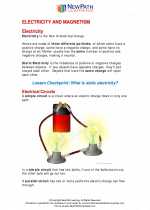
 Activity Lesson
Activity Lesson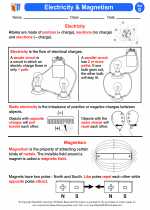
 Worksheet/Answer key
Worksheet/Answer key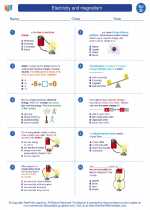
 Worksheet/Answer key
Worksheet/Answer key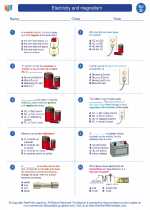
 Worksheet/Answer key
Worksheet/Answer key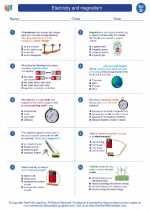
 Worksheet/Answer key
Worksheet/Answer key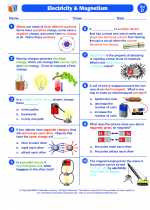
 Vocabulary/Answer key
Vocabulary/Answer key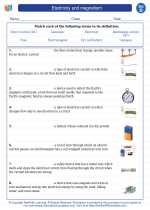
 Vocabulary/Answer key
Vocabulary/Answer key